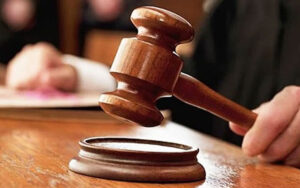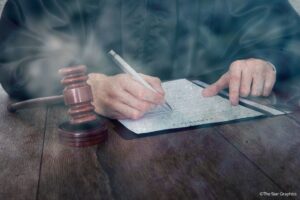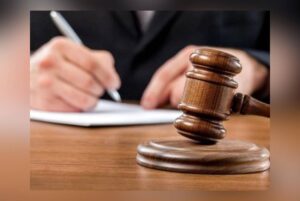By Annabelle Lee and Kow Gah Chie | Malaysiakini
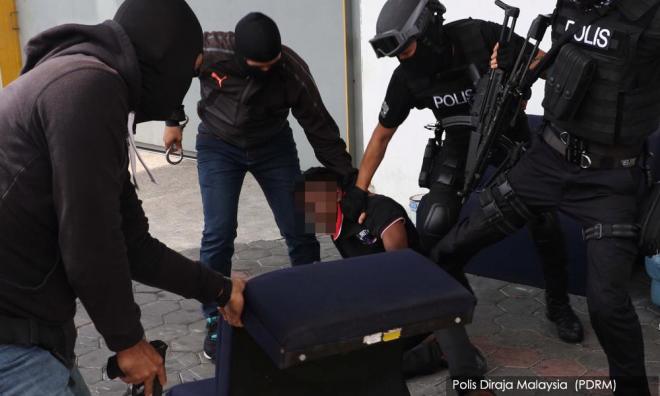
Lawyers have expressed concern that the two DAP lawmakers and 10 others who were charged for their purported links to the now-defunct terrorist group Liberation Tigers of Tamil Eelam (LTTE) may not receive fair trial.
This is because their trials will not be guided by the Criminal Procedure Code (CPC) and Evidence Act, but will be governed by the Security Offences (Special Measures) Act 2012 (SOSMA).
“When someone is charged for terrorism-related offences, their criminal trial is governed by SOSMA, which is different from a normal criminal trial.” lawyer New Sin Yew told Malaysiakini.
“SOSMA overrides the Criminal Procedure Code and the Evidence Act,” he said.
SOSMA makes the criminal trial extremely lopsided in favour of the prosecution as it takes away many safeguards for a fair trial under the Criminal Procedure Code and the Evidence Act, he said.
The normal discovery procedures and production of documents in criminal cases can be sidelined if the government considers it to be “sensitive information”, according to New (below).
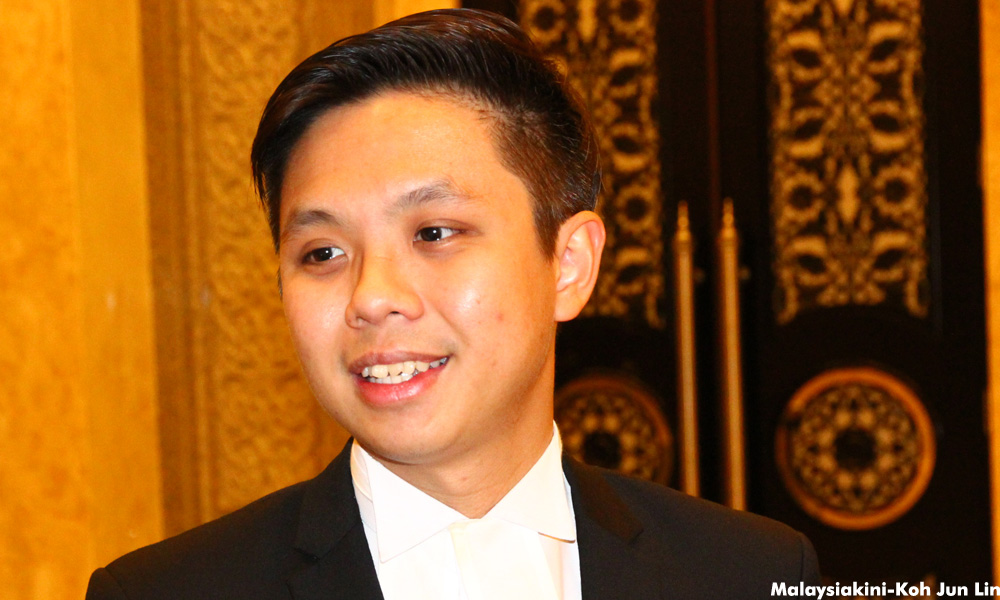
“Usual evidentiary rules are also circumvented under SOSMA benefitting the prosecution,” he said.
Citing examples, he said statements by people who are dead, missing or cannot be found are admissible while documents seized during raids and investigation are also admissible regardless of how it was obtained.
“An accused can be convicted based on the uncorroborated testimony of a child of tender years and not given under oath. All forms of intercepted evidence is admissible and the prosecution need not disclose how such evidence was intercepted,” he said.
The prosecution is allowed to use “protected witnesses” whose identity is not revealed in the trial, he said.
“The defence is prohibited from asking any questions that may lead to the identification of the witness. The witness may identify the accused or other persons even though the witness is not visible to them.”
“This makes it very difficult for the accused to defend himself,” he said.
The hands of the trial judge are tied by the draconian provisions of SOSMA, added New.
Police had detained 12 men under SOSMA over their alleged links with the LTTE on Oct 10 and Oct 12.
They were slapped with multiple charges under section 130 of the Penal Code on Oct 29 and Oct 31.
It was reported in November 2018 that over 2,000 individuals were detained under SOSMA.
A report in November 2017 said a total of 159 children detained under the same Act.
After drawing flak over the latest usage of SOSMA, Home Minister Muhyiddin Yassin announced that the government will amend SOSMA by reducing the detention period from 28 days to 14 days.
The SOSMA amendment is appeared to be tabled in Parliament in March 2020.
However, another lawyer R. Sivahnanthan opined that simply reducing the detention period cannot ensure a fair trial for the accused persons.
“It’s not just the 28 days of remand under SOSMA which needs amendment, other prosecution-favoured provisions shall also be amended.
“The more serious the offence is, the more reliable and trustworthy the evidence must be, not flimsy evidence shall be admissible in a court of law,” he said.
“To make things worse, the witness will be able to give hearsay evidence in court which is admissible under the (existing) SOSMA,” he said.
Hearsay evidence simply means “a report of another person’s words by a witness”, he said.
“It is nearly impossible to rebut those evidence without first knowing the background and the nexus between the witness and the accused,” he said.
The usage of SOSMA is like an assured conviction against the accused, he said.
He said even if an accused person is acquitted and proven to be innocent, the prosecution can inform the court of their intention to appeal to the higher court and the accused will continue to be remanded in prison.
The remand process will continue until all the two-tier appeal process is disposed off and the entire process can lead up to six to seven years altogether.
“Why an innocent shall serve six to seven years of remand in prison despite being acquitted numerous times?” questioned Sivahnanthan.
Lawyer Amer Hamzah Arshad said the long period of detention under SOSMA could be abused to exert pressure on a suspect.
“In the UK during the 1970s, we had witnessed how security laws had been abused and resulted in miscarriages of justice in the Guilford Four and Maguire Seven cases.
The Guildford Four and the Maguire Seven were the collective names of those convicted for bomb attacks and handling explosives in 1975 and 1976 respectively.
Their conviction was reversed in 1989 and 1991 respectively.
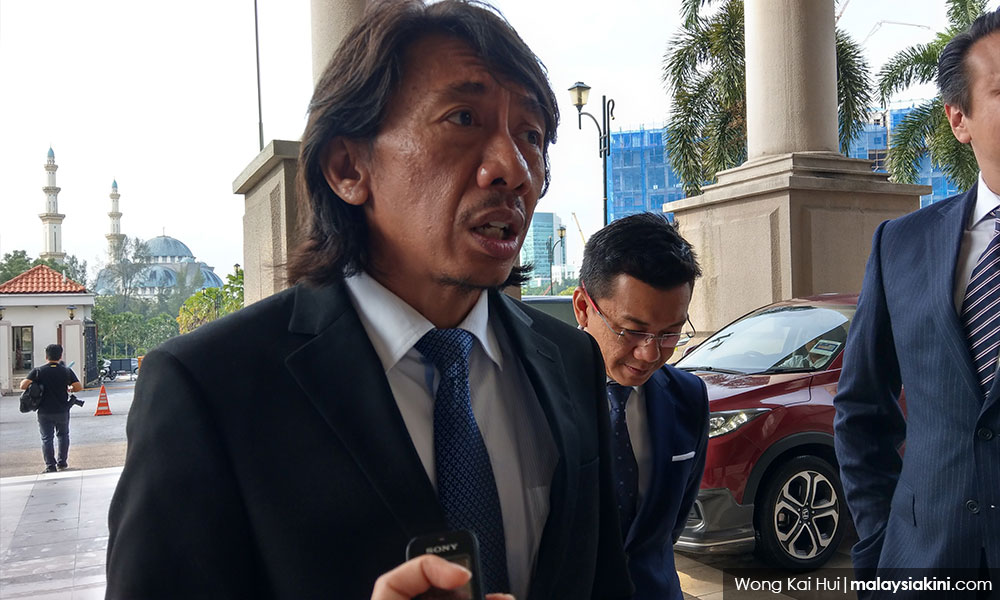
Amer (above) also noted the element of secrecy in SOSMA open up to the possibility of the prosecution planting an untruthful witness to testify against the accused.
He was referring to the SOSMA provision which allows the witness to give evidence in anonymity.
Meanwhile, New said SOSMA, which was enacted under Article 149 of the Federal Constitution, allows the laws that violate fundamental liberties to be passed to stop or prevent actions that would threaten the nation.
“Once a suspect is arrested and charged in court, it can be said that the threat has been stopped or prevented,” he said.
“As far as the suspect is concerned, all that is left to do is for the prosecution to prove the suspect’s guilt,” said New.
“These provisions contained in Part IV to Part VIII of SOSMA that deal with the trial procedure and evidentiary rules have nothing to do with the prevention of threat.
“What SOSMA does is to make it easier for the prosecution to secure a conviction instead of stopping or preventing threats,” he said.
Therefore, he said, Part IV to Part VIII of SOSMA is ultra vires of Article 149 of the Federal Constitution.

